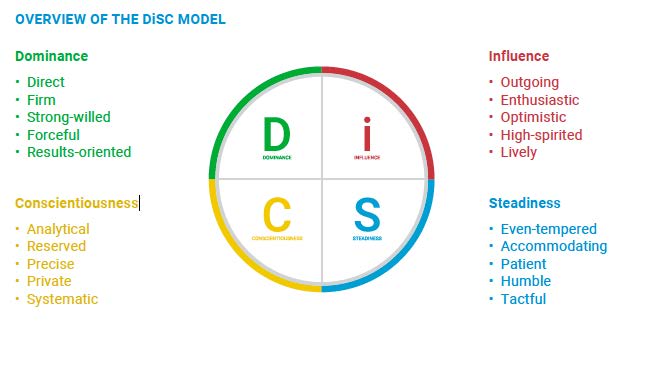Menu
- Executive Search
- Tailormade
- Handpicked
- Financial Planner Plus
- Scale Up
- Our Handpicked Services
- Handpicked Sales Director
- Handpicked Operations Director
- Handpicked Chief Financial Officer
- Handpicked Managing Director
- Handpicked Compliance Director
- Handpicked Marketing Director
- Paul Harper Consulting
- Psychometric Testing
- Executive Coaching Services
- Team Coaching Service
- Integration of People and Culture
- Mergers & Acquisitions
- Vacancies
- Testimonials
- Candidates
- FAQ's
- Blog
- Contact
- Introduction to Team Coaching: This initial meeting is an opportunity for the team coach to meet with the team leader, introduce themselves, and discuss their credentials and approach to team coaching.
- Discovery: This phase involves engaging with the team leader and observing team meetings to identify areas for improvement. The coach will collect data and themes, as well as administer team psychometric assessments to gain a deeper understanding of the team dynamics.
- Design: In this phase, the coach will design customised workshops and success measures based on the goals identified during the discovery phase.
- Delivery: The coach will deliver a series of workshops tailored to the specific needs of the team. The number of workshops will depend on the brief, but the first workshop will always set the scene and create the team partnership agreement i.e., how will everyone work together.
- Debrief: After the workshops are complete, the coach, leader and the team will review the progress made against the original goals, identify any difficulties encountered, and outline next steps.

Team Coaching Service
Back to Consulting
.png?1678968372967)
What is Team Coaching?
Team Coaching is an intervention focused on improving the performance of a team. The primary goal is to help the team make more effective use of their collective skills and knowledge to achieve their objectives. This approach offers an opportunity for the team to reflect collectively on their goals and how they can work together to achieve them.
The team coaching process involves assessing how the team is currently operating and interacting, identifying areas for improvement, and developing the team develop strategies to help enhance team effectiveness. By reflecting on how everyone is working together, team members can build awareness of their collective strengths and weaknesses to improve communication and collaboration.
Team Coaching can also be used to address specific issues that are hindering the team's performance. By creating a safe space to discuss these issues, team members can work together to find solutions and move past any roadblocks.
Team Coaching typically involves multiple dedicated sessions over a period, rather than being tagged onto the end of a sales meeting or other event. This allows the team to adapt and change over time, with support from one or more coaches.
What are the steps?The Team Coaching process involves several key steps, including:
Familiarisation Meetings: These initial meetings are designed to help the coach understand the issues facing the team from the perspective of the leader. It may also involve observing the team in action to gain a deeper understanding of the current dynamics.
Building Trust: Building trust with the team leader is critical to the success of the coaching engagement. The coach needs to ensure the leader is fully aware of the team coaching approach and comfortable with the process.
Understanding Team Dynamics: A key part of the coaching process is gaining a deeper understanding of the "beneath the surface" dynamics of the team. This is where tools like DiSC can be particularly useful. Individual DiSC reports are produced, as well as a team culture profile, to help everyone understand the preferences of the team.
Designing Team Coaching Sessions: Once the coach has a clear understanding of the team dynamics and the goals of the coaching engagement, they can begin designing the team coaching sessions. This step is critical to ensuring that the sessions are tailored to the specific needs of the team and will be effective in driving positive change.
By following these steps, the team coaching process can be both effective and transformative, leading to improved team performance and a stronger, more cohesive team culture.
Team Coaching is typically offered as a comprehensive program that consists of several key components, including:
.png?1678968278281)
In addition to these components, one-to-one coaching may also be incorporated into the program to support individual team members in achieving their personal and professional goals. By following this structured approach, team coaching can drive meaningful change and help teams achieve their full potential.
What is DiSC?
DiSC is a well-researched and widely used self-understanding model that provides valuable insights into individual preferences and tendencies. By gaining a better understanding of their personal profile, individuals can identify their strengths and weaknesses and develop strategies to improve how they relate to others.
In Team Coaching, the use of DiSC can be particularly powerful in helping teams work more effectively together. The personal profile generated by DiSC plots individuals into one of four styles:

D - Dominance (Driven)
I - Influence (Inspiring)
S - Steadiness (Stable)
C - Conscientiousness (Correct)
.png?1678967823204)
This information can be used to improve communication and collaboration within the team, as well as to enhance team performance.
Additionally, the Team Culture Report produced from DiSC assessments can provide valuable insights into the overall dynamics of the team. This report can help to identify the most pronounced styles within the group, the style of the group leaders, and the level of cohesion or tension within the team.
By leveraging the power of DiSC in Team Coaching, individuals and teams can gain a deeper understanding of themselves and others, leading to improved communication, stronger collaboration, and better overall performance.
Interested in finding out more?
Email consulting@paulharpersearch.co.uk
or call 01761 252 536
General Enquiries

